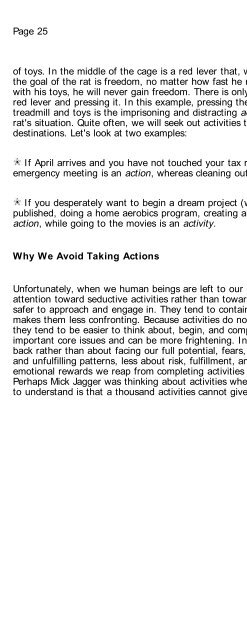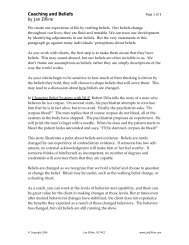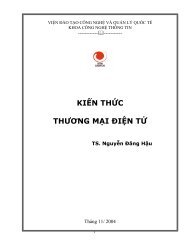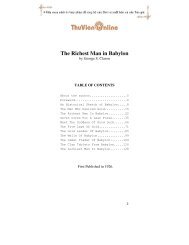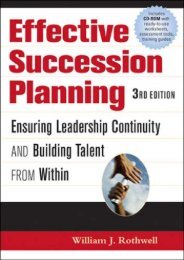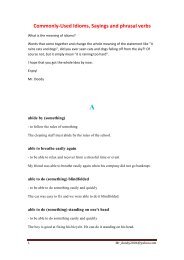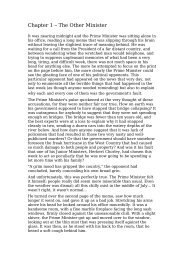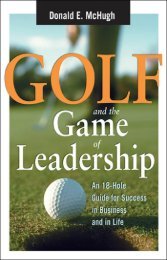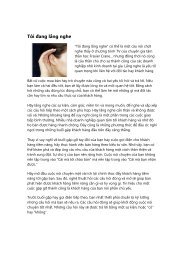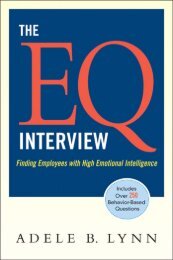1. The 15-Second Principle
1. The 15-Second Principle
1. The 15-Second Principle
Create successful ePaper yourself
Turn your PDF publications into a flip-book with our unique Google optimized e-Paper software.
Page 25<br />
of toys. In the middle of the cage is a red lever that, when pressed, will open the door and set him free. If<br />
the goal of the rat is freedom, no matter how fast he runs on the treadmill or how involved he becomes<br />
with his toys, he will never gain freedom. <strong>The</strong>re is only one way out of jail for this rat: going directly to the<br />
red lever and pressing it. In this example, pressing the lever is the freeing action; busying himself with the<br />
treadmill and toys is the imprisoning and distracting activity. <strong>The</strong> human condition is very similar to the<br />
rat's situation. Quite often, we will seek out activities that are not essential in helping us reach our<br />
destinations. Let's look at two examples:<br />
If April arrives and you have not touched your tax returns, calling your accountant and setting up an<br />
emergency meeting is an action, whereas cleaning out a closet and washing your car are activities.<br />
If you desperately want to begin a dream project (writing a novel, starting a report, getting an article<br />
published, doing a home aerobics program, creating an oil painting), taking a step toward that project is an<br />
action, while going to the movies is an activity.<br />
Why We Avoid Taking Actions<br />
Unfortunately, when we human beings are left to our own devices, we are much more likely to direct our<br />
attention toward seductive activities rather than toward challenging actions. This is because activities are<br />
safer to approach and engage in. <strong>The</strong>y tend to contain less emotional and psychological charge, which<br />
makes them less confronting. Because activities do not address our dreams, personal identities, or mastery,<br />
they tend to be easier to think about, begin, and complete. Actions, on the other hand, deal with more<br />
important core issues and can be more frightening. In addition, activities are about staying busy or kicking<br />
back rather than about facing our full potential, fears, and responsibilities. <strong>The</strong>y are more about avoidance<br />
and unfulfilling patterns, less about risk, fulfillment, and the unknown. As a result, the feelings and<br />
emotional rewards we reap from completing activities are limiting. With low stakes come low payoffs.<br />
Perhaps Mick Jagger was thinking about activities when he sang, "I can't get no satisfaction." What's vital<br />
to understand is that a thousand activities cannot give you


